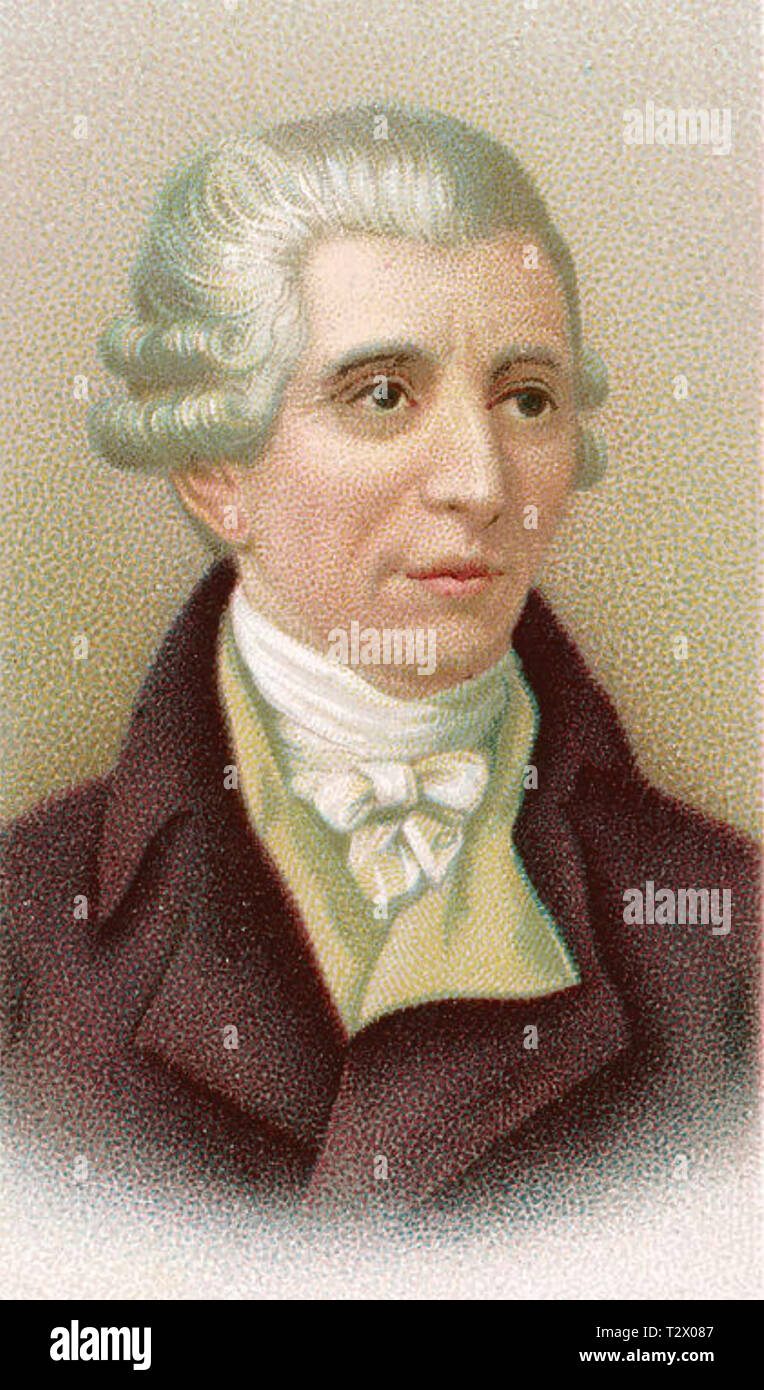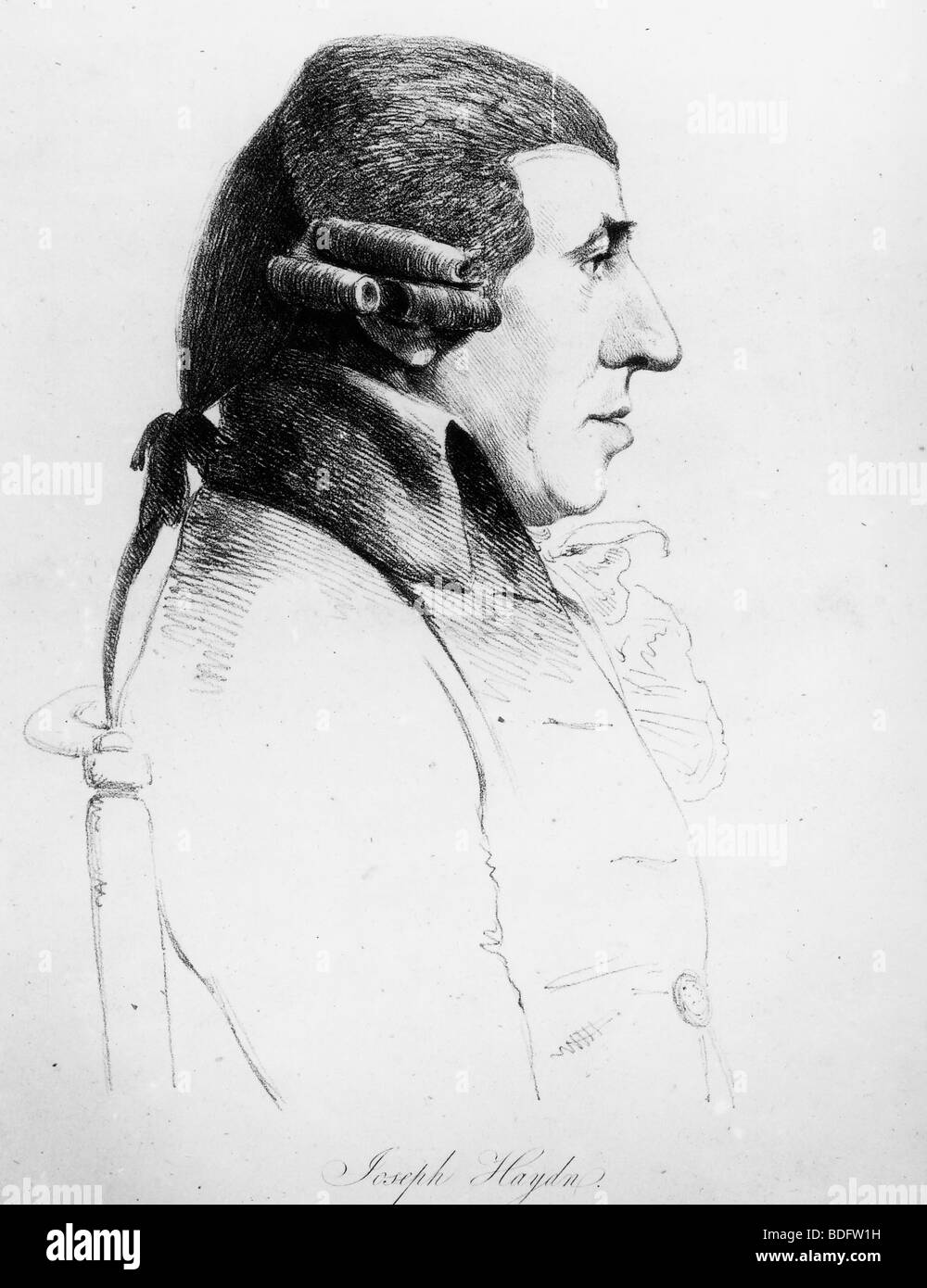

Nicholas was an ardent music lover and the new palace had a 400 seat theater for opera. Prince Paul Esterhazy was succeeded by Prince Nicholas, the Magnificent, who in turn built a new palace second only to Versailles. It was an event that would have ramifications for the history of music. In 1761, Haydn entered the service of the Esterhazy family as vice-Kapellmeister. Haydn later rationalized his extramarital affairs telling his first biographer, "My wife was unable to bear children, and for this reason I was less indifferent toward the attraction of other women." She did not like music, was a spendthrift, ill tempered and basically a shrew. Two years later he married Maria Anna Keller, the daughter of a hairdresser. By his own admission, for eight years Haydn who was "a wizard on no instrument.eked out a wretched existence." Slowly, though, his reputation grew, and in 1758 he became the music director and composer for Count von Morzin.

Bach and taking a few composition lessons. Until 1758, he lived an impoverished freelance life, meanwhile studying the music of C.P.E. Stephen's Cathedral in Vienna where he excelled until 1749 when his boy soprano voice broke and he was expelled. But he listened to everything around him and "thus little by little my knowledge and ability were developed." Haydn was not a prodigy like Mozart, Schubert or Mendelssohn, but he had an even, balanced, and highly industrious temperament that served him well and fit comfortably with the era in which he was born.Īt the age of eight, Haydn was recruited into the choir of St. In an autobiographical sketch, Haydn remembered his childhood as "more floggings than food" and without proper teaching. His studies at nearby Hainburg included lessons on wind and string instruments and his musical gifts were quickly evident. He was raised essentially as a peasant (a heritage reflected in the later character of his minuets particularly), but with the hope that he might become a clergyman. Haydn was born in the town of Rohrau on the Austrian-Hungarian border in 1732, the son of a wagon maker. Haydn was warmly known as "Papa" by his orchestra at the Esterhazy Court where he worked for a good deal of his life, but he has become known as Papa Haydn to us all. The forms that he brought to their first perfection are at the center of all ensuing musical thought: the symphony, string quartet, and piano sonata. In many ways Franz Joseph Haydn, the quintessential composer of the period of eighteenth century Enlightenment, is the father of modern music.


 0 kommentar(er)
0 kommentar(er)
